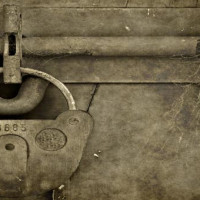About the Project

In 2012, the Armenian Center for Ethnological Studies “Hazarashen” NGO sponsored by and in collaboration with the German non-governmental organization “DVV International” (Institute for International Cooperation of the German Adult Education Association) started the implementation of a project.The project aims at identifying the manifestations of political repressions taken place in the period of Soviet totalitarianism in Armenia and their present social perceptions.The project intends to elucidate the socio-cultural and socio-psychological manifestations of totalitarianism among the population of Soviet Armenia and highlight the process of Soviet life formation. It aims at detecting and mitigating the effects left by the dictatorial system through making the results of the research public. The project is called “Armenia total (itar) is” (Total(itar)ian Armenia). By the term “Total(itar)is” we try to emphasize that our study subjects are the manifestations of “totalitarianism” and the problems of the “totalitarian” era in the “total” territory of Armenia and in its various areas of everyday life.
Theresearch team implementsthe project through the methodology of oral narration, where the main sources of the research are the people with their lived lives, regardless of whether they are the totalitarian era’s direct or indirect victims or their descendants.
Through interviews with people, we try to reveal some depths of their individual, family, and collective reminiscences and find out their thoughts about the “dark pages”of the Soviet Union and those specific episodes that haveturned into the key of their reminiscences. We also find out how the “victim’s” family survived, how it became dissocial and social again, what socio-cultural impact the specific violencehas left (i.e.family case), and in generally, what fears and alarms the atmosphere of violence has left in the family, etc.We are trying to figure out how these people explain the occurrence of the political repressions in the life of their parents, in fact, in the life of at least three generations or who they think is to blame, or whetherthey consider the repression towards their family a mistake or a quite natural case.
We have significantly enriched our knowledge during the process of collecting materials, and now perhaps we can generalizeand present the gathered material as an analytic text in the form of a book to our interested reader.
We have already made a documentary film based on oral narrations, organized also aworkshop discussion and a summer school in Kapan, the administrative center of Syunik. Moreover, we have established this website.
In section STORIES of the website you can read the interlocutors’ stories with NOTES to them.
In section NEWS, you can learn about the events carried out in the frame of the project and the latest results of the project.
In sectionPHOTOS and VIDEOSyou can find the photos and videos related to our interlocutors.
In section PRESS, you can find some editions of Armenian press released in 1936-37, 1949 and 1953-56, which contain materials and information about the socio-political situation in the country.
In GLOSSARY,you can find notes to the terms, personal and geographical names used in the interviews.
In section DOCUMENTS, you will find the documents from ourinterlocutors’ family archives.
We shall be grateful to all those who will possibly enrich our database with their own stories, and we hope that this site will facilitate the exchange of ideas on the subject.

